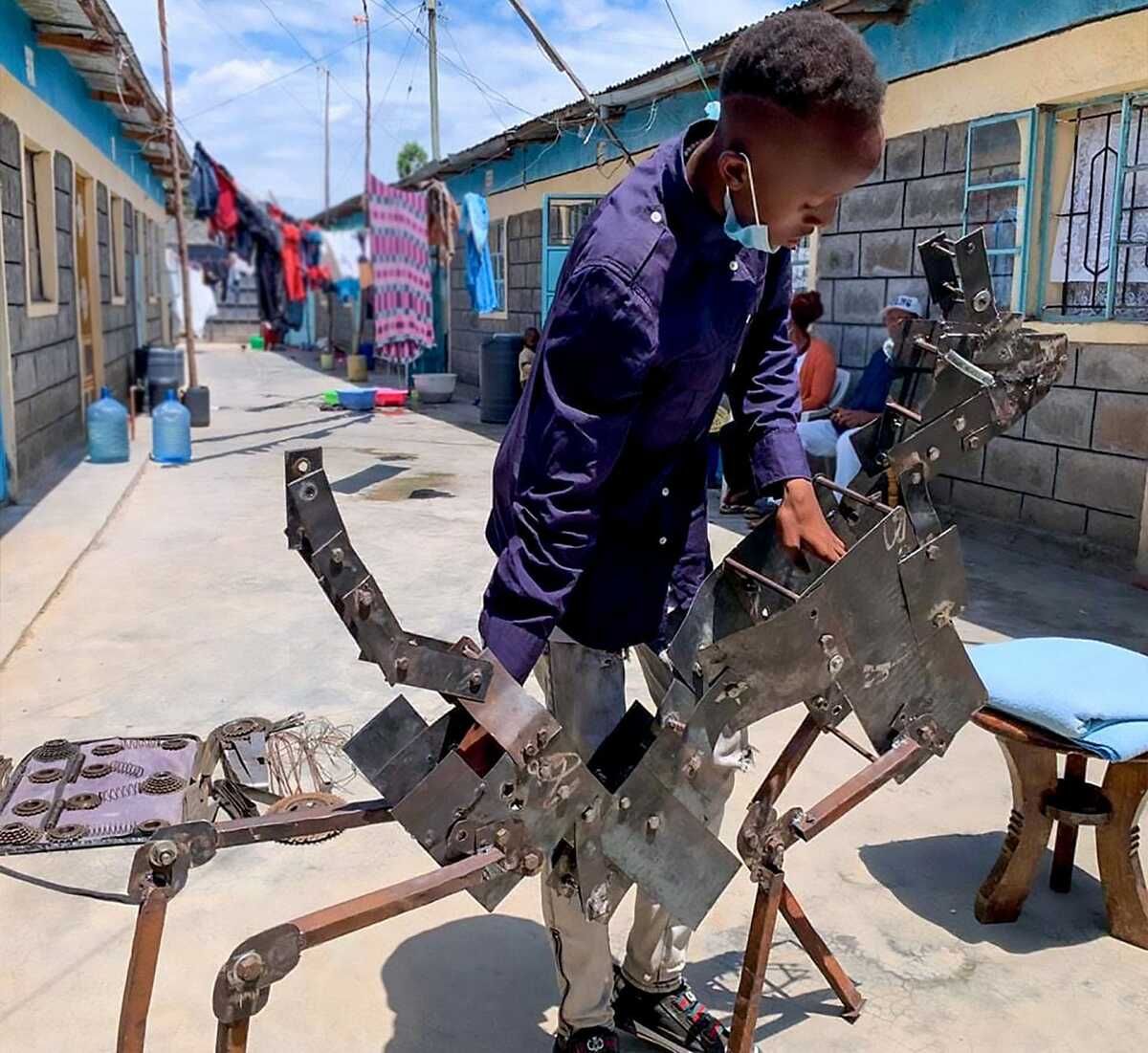
## David Kamau made his first prototype robot when he was 14. Now, as an engineering student, his schemes are for a robotic dog to keep soldiers safe. Kamau's dream? An Africa that is tech-driven.
By Jackson Okata, bird story agency
Hunched over scrap metal, a slender teenager is busy at his workbench. Some distance away, a woman stands, keenly following what the young man is doing. The young man is so engrossed in his work that he barely notices people coming or going through the compound gates. Some just want to stand and watch him at work.
David Laurence Kamau, 19, was barely a teenager when Kenya experienced its worst terror attacks, after the country engaged in a war to help rid neighbouring Somalia of deadly al-Shabaan militants.
Today, in a temporary workshop in front of his mother’s two-roomed rented house, the teenager spends most of his time working on a design for a robotic dog that could help, as he puts it, “keep my country safe from al Shabaab terrorists”.
Images and tales of the country's security agencies putting their lives on the line to keep citizens safe are what inspired him to seek a solution that would minimise casualties on the frontline.
Despite the busy surroundings of the compound in Mzee Wa Nyama estate in Nakuru City, 158 kilometres west of Nairobi, the area around the workshop is hushed. It's almost as if the neighbours have signed a silent pact to give him the peace and quiet he needs to work on his "dog ya chuma" ("metallic dog"). Only when Kamau's mother, Rose Kimani, welcomes visitors with a loud "karibu" ("welcome") does Kamau rise to welcome them.
The last-born in a family of four, Kamau said that since childhood he has always loved toys, which led him to his passion for robots.
Childhood friend Kevin Kamau said that Kamau was always the go-to techie in the neighbourhood.
Father Ezekiel Ngaruiya, a former principal of the school, said he noticed Kamau’s love for science in his first year.
His enthusiasm would see Kamau given unlimited access to the school computer lab, a place he says became his research centre.
Valentine Luvembe, Kamau’s former biology teacher says the young robot guru’s passion for sciences made him a darling of science teachers in the school
According to his mother, Kamau’s journey as a budding robot engineer started in childhood.
Kamau said he has always been curious. As a child, toys would often become objects of investigation.
At 14, using wires from cloth hangers, he developed his first model robot.
Kamau, however, was not sure of what type to make until he saw on television the death and devastation in Somalia and later in Lamu, in an attack on north-eastern Kenya, by al Shabaab militants.
This is when he started working on a model for a “robodog” in earnest. He would like to ensure that a "robotic military dog" would have the capacity to disarm, detect and detonate explosives, which could save scores, if not hundreds, of human lives.
The robodog would use AI to improve efficacy.
With the schematics for the electronics and mechanics work "largely done," he said, he is now in the process of designing software that will aid the functioning of the robot.
A lack of money to buy the requisite components for his robotic dog model has forced him to work with any available materials, including items recycled from waste. His mother has been a great supporter, helping him wherever possible.
While Kamau has so far designed six models - including one for assisting people with visual impairment - he is aware he still has a long journey ahead of him. But he can already see his goal.
And how does Kamau see the future?
bird story agency